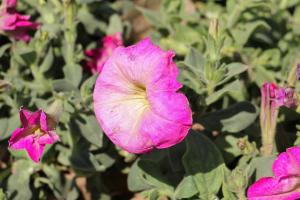How to Apply Manure to Potted Plants
Potted plants are a great way to bring greenery and life to any space, whether it is a balcony, patio, or indoor area. While regular watering and fertilizing are key to maintaining healthy potted plants, using natural fertilizers such as manure can provide additional benefits for plant growth and health. Here are some tips for applying manure to potted plants:
1. Choose the Right Type of Manure
Not all manure is created equal, and different types of manure offer different nutrients and benefits for plants. Some common types of manure that can be used for potted plants include:
Composted cow manure: high in nitrogen, phosphorus, and potassium
Composted horse manure: high in potassium and phosphorus, lower in nitrogen content
Composted chicken manure: high in nitrogen and phosphorus, but can be too strong for some plants
Before applying any type of manure to potted plants, it is important to compost it first to avoid any potential pathogens or harmful bacteria that may be present in fresh manure.
2. Use the Right Amount
When using manure as a fertilizer for potted plants, it is important to use the right amount to avoid over-fertilizing or under-fertilizing the plants. A general rule of thumb is to use one-fourth to one-half cup of composted manure per gallon of potting soil. Spread the manure evenly around the potting soil and mix it in before planting, or add it as a top layer every 4-6 weeks during the growing season.
3. Avoid Direct Contact with Plant Roots
While manure can be beneficial for potted plants, direct contact with the roots can cause burning and damage to the plants. To avoid this, make sure to mix the composted manure evenly with the potting soil or add it as a top layer rather than placing it directly on the soil around the plant roots.
4. Water In Well
After applying manure to potted plants, it is important to water the plants well to help the nutrients in the manure reach the roots. The added moisture will also help prevent any potential burning of the plants from the manure.
5. Monitor Plant Growth and Health
Regular monitoring of the growth and health of potted plants is essential when using manure or any other type of fertilizer. Signs of over-fertilizing include yellowing leaves, stunted growth, and a buildup of salts on the soil surface. If any of these signs are present, reduce the amount of manure or fertilizer being used and water the plants well to flush out any excess salts.
By following these tips for applying manure to potted plants, you can help ensure healthy growth and vitality for your plants throughout the growing season.

 how many times do yo...
how many times do yo... how many planted tre...
how many planted tre... how many pine trees ...
how many pine trees ... how many pecan trees...
how many pecan trees... how many plants comp...
how many plants comp... how many plants can ...
how many plants can ... how many plants and ...
how many plants and ... how many pepper plan...
how many pepper plan...
































